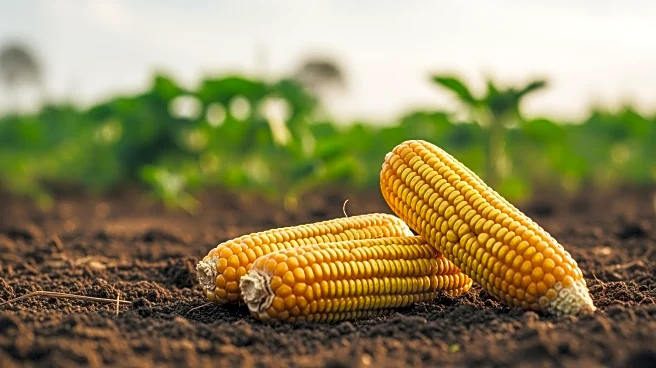What's Happening?
Mozambique is aiming to transition from subsistence agriculture to income-generating farming, as stated by Jaime Chissico, the national director of Cooperation and Investment at the Ministry of Agriculture.
The country faces challenges such as climate change, access to financing, and agricultural research. Mozambique has defined maize, poultry, soya, legumes, vegetables, and red meat as key value chains to boost production and replace imports. The government is investing in technologies for high-quality seeds and improving pest control, irrigation systems, and agricultural modernization. Cooperation with Brazil is sought to enhance genetic improvement and livestock sector capabilities.
Why It's Important?
This shift in agricultural strategy is crucial for Mozambique's economic development and food security. By focusing on income-generating agriculture, Mozambique aims to increase productivity and reduce dependency on imports, which can strengthen its trade balance. The investment in agricultural technologies and infrastructure is expected to improve resilience against climate change impacts. Cooperation with Brazil could provide Mozambique with advanced agricultural techniques and technologies, potentially boosting the sector's productivity and sustainability.
What's Next?
Mozambique plans to create its own credit lines for the agricultural sector to facilitate investment and growth. The government will continue to develop cooperatives to strengthen national production blocks and provide technical assistance. The collaboration with Brazil is expected to expand, focusing on genetic improvement and livestock sector advancements. These efforts aim to establish a more independent and robust agricultural sector in Mozambique.









